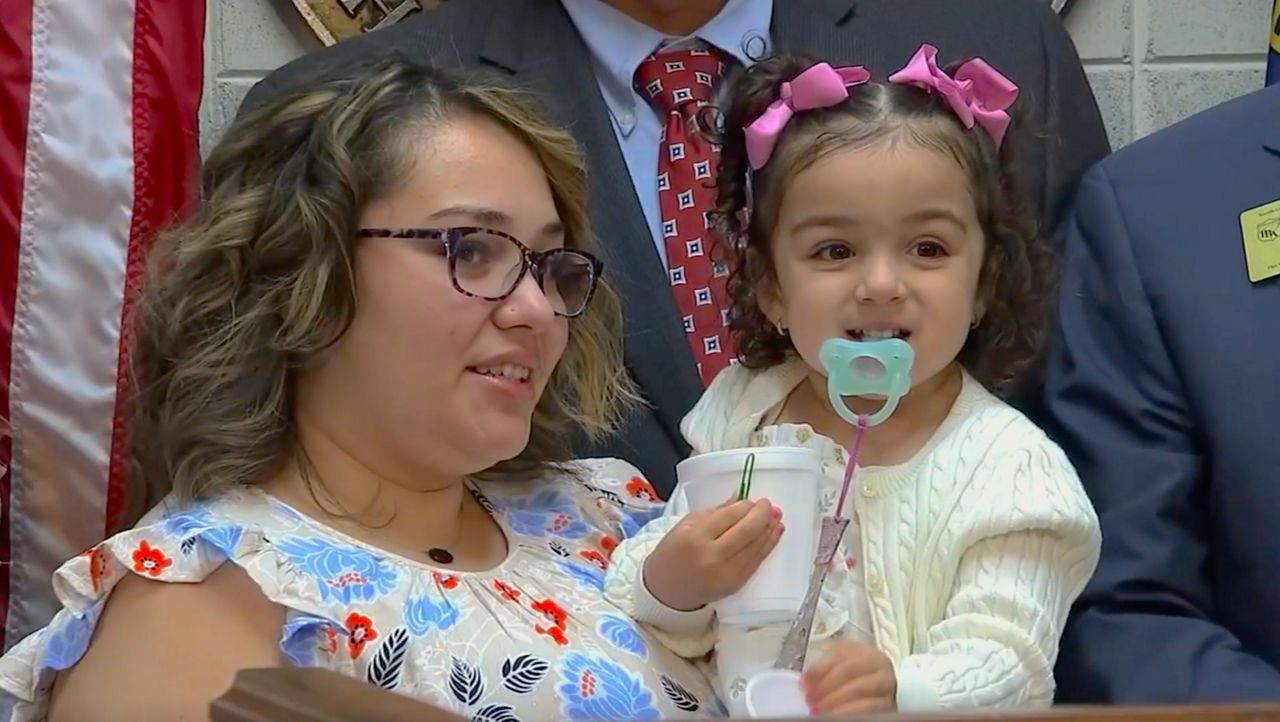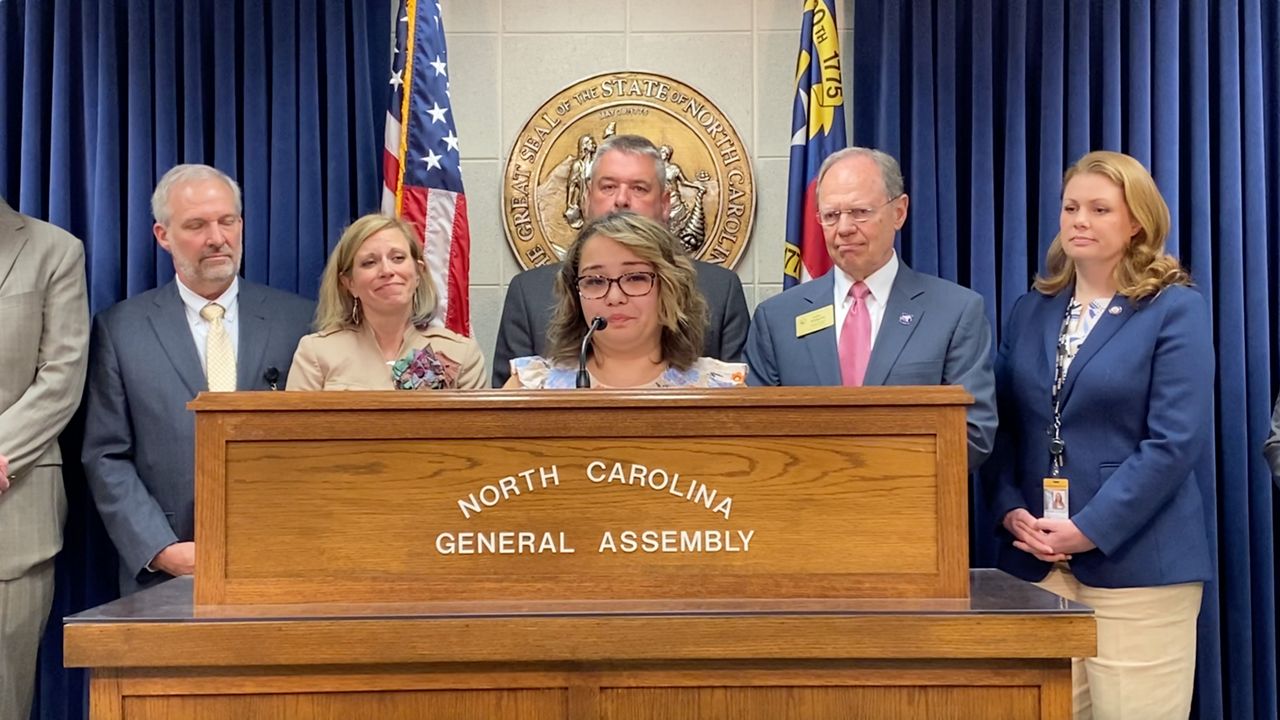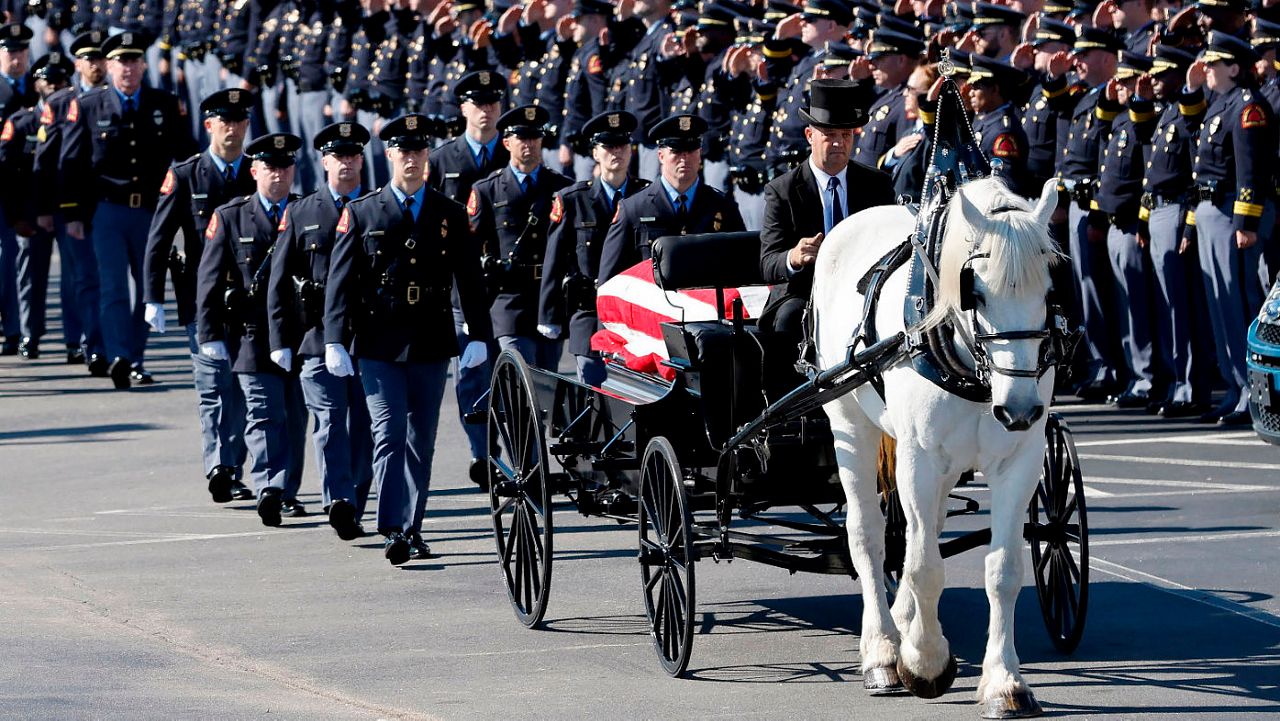RALEIGH, N.C. — The widow of a fallen Raleigh police officer joined a bipartisan group of lawmakers on Wednesday at the General Assembly to support legislation honoring her late husband.
The Gabe Torres Act, also known as House Bill 363, was filed in March. If passed, the legislation would expand the state’s law enforcement death benefits to include law enforcement officers who are on their way to work.
Currently, officers are considered “in line of duty” and receive death benefits when responding to, engaged in or returning from a department call as well as if they are en route to, engaged in or returning from training.
Officer Gabriel Torres was shot and killed on his way to work during the mass shooting in Raleigh's Hedingham neighborhood six months ago.
Jasmin Torres, the widow of Gabriel Torres, says she and her 2-year-old daughter do not immediately qualify for the state’s $100,000 law enforcement death benefits because her husband was on his way to work.

“I received notices I’m losing benefits with the city. I was not going to be eligible for these,” Jasmin Torres said. “I had to reach out to a few people and learn that my family is not immediately eligible and that this would take some time, some stress, some fighting.”
Torres says that despite this unimaginable situation, she feels grateful for the support she and her daughter have received.
“I felt so alone when the incident happened. I had to deal with the situation at hand. I was the first responding person and I felt so alone. We have no family here. We were in this state alone with our daughter,” she said.
“Shortly after everything happened, we were accompanied through our darkest moments with all these people here and people that I’ve never met. We were supported in writing. We were supported in phone calls. We were supported through social media. We were supported with meals and with prayers. It lifted us up, and it has given me reassurance to know there’s something more — that there’s people, good people in this world despite the few bad people who bring on this type of pain,” Torres said.
Torres says this proposed change in the state’s law will help honor her husband’s life and legacy.
“Our current line of duty death benefit requirements reads incomplete. Change is crucial. Change is warranted. All it takes is adding a few words,” Torres said. “Let’s get the Gabe Torres Act onto the House floor. Let’s ensure no other first responder family in this state is left with uncertainty.”
Torres says her daughter, Layla, has given her strength during a time of uncertainty.

“Change is inevitable. Growth makes all the difference. Change to our lives happened in an instant. That's all it takes: an instant. What would normally be a routine day turns into a real-life nightmare. We went from a family of three to an army of two,” Torres said. "I am surviving. I am putting one foot in front of the other, even on the days that my feet know no direction."
The bill passed the House Committee on State Personnel unanimously and has been referred to the House Committee on Pensions and Retirement.
If it becomes law, the Torres family would end up receiving those benefits because it is retroactive to Jan. 1, 2022.








